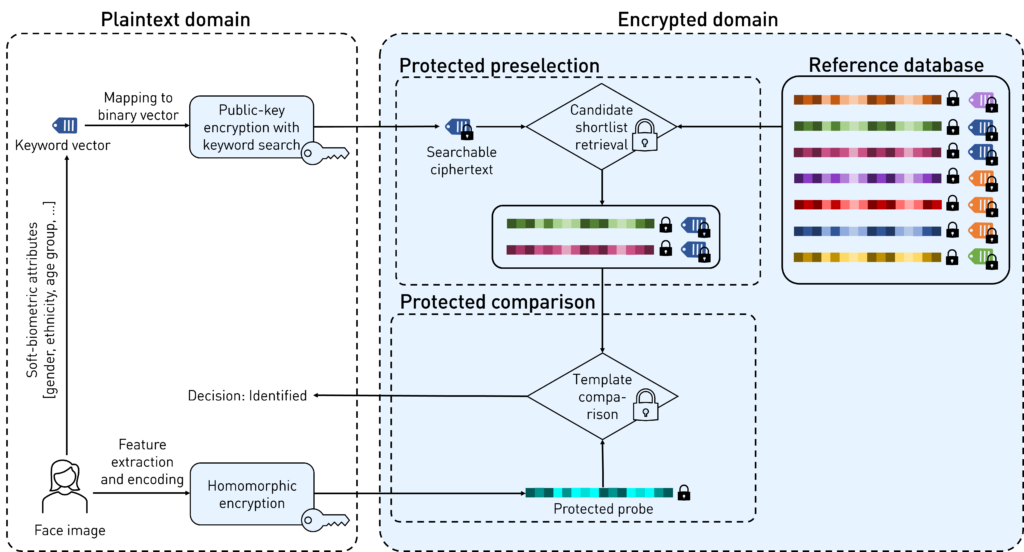Pia Bauspieß defended her Master Thesis on Privacy-Preserving Preselection for Workload Reduction in Protected Biometric Identification Systems

Biometric authentication has gained increasing popularity due to its usability and versatility, from smartphone access to border control. However, biometric data are sensitive data deserving adequate protection. Adding to that, the efficiency of biometric systems, in particular efficient and accurate biometric identification, is one of the most challenging open problems in biometric authentication. As a solution to a combination of both challenges, this Thesis proposes an efficient privacy-preserving reduction of the computational workload of biometric identification systems. More precisely, a preselection on the protected biometric database is facilitated by applying public-key encryption with keyword search (PEKS) to biometric identification. For long-term protection of the biometric data, post-quantum secure PEKS and fully homomorphic encryption are applied. Throughout the system, the unprotected recognition performance is preserved. In an evaluation on two public face databases, the computational workload of an identification search is reduced down to 8.4% compared to an exhaustive search, achieving identification on 1062 subjects in 210 milliseconds. Based on these results, an identification search on 1 million subjects can be estimated at under 3 minutes using off-the-shelf hardware.
